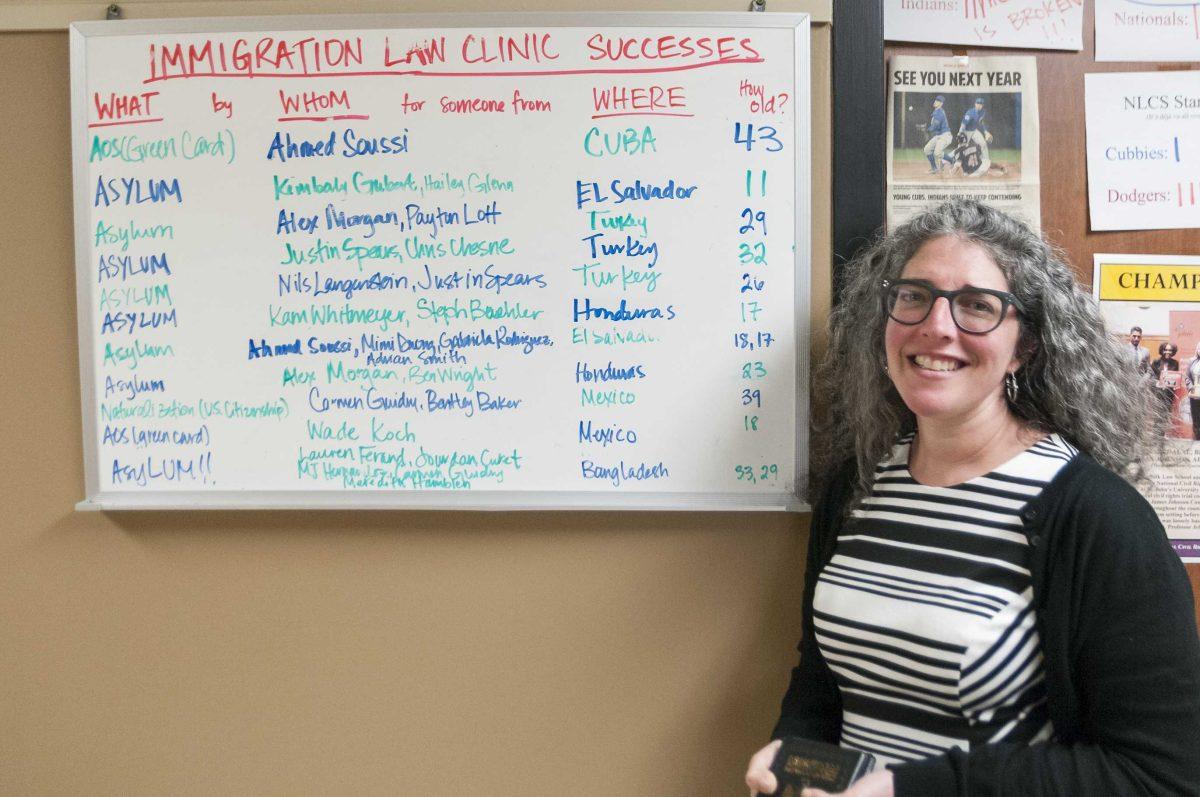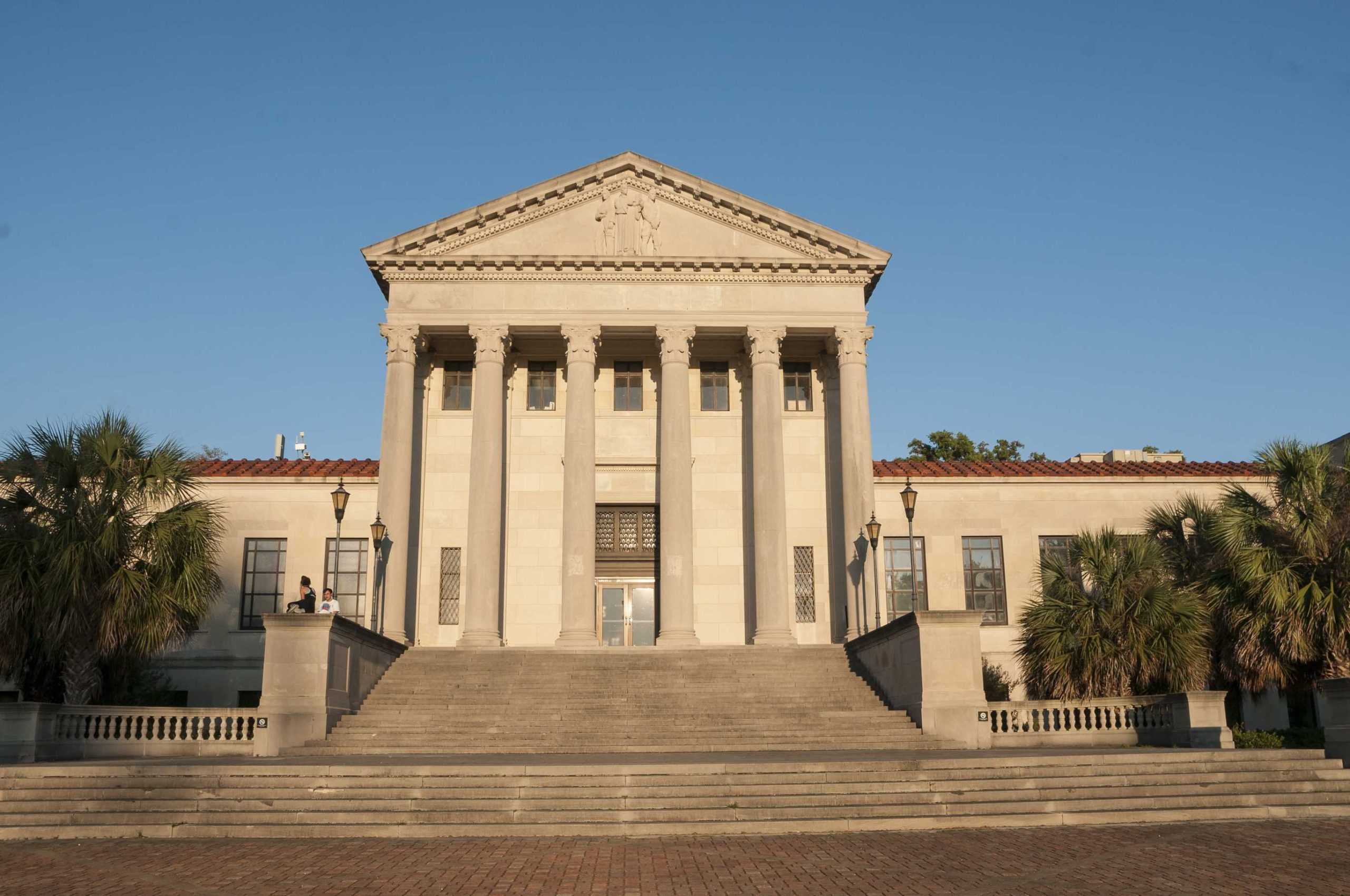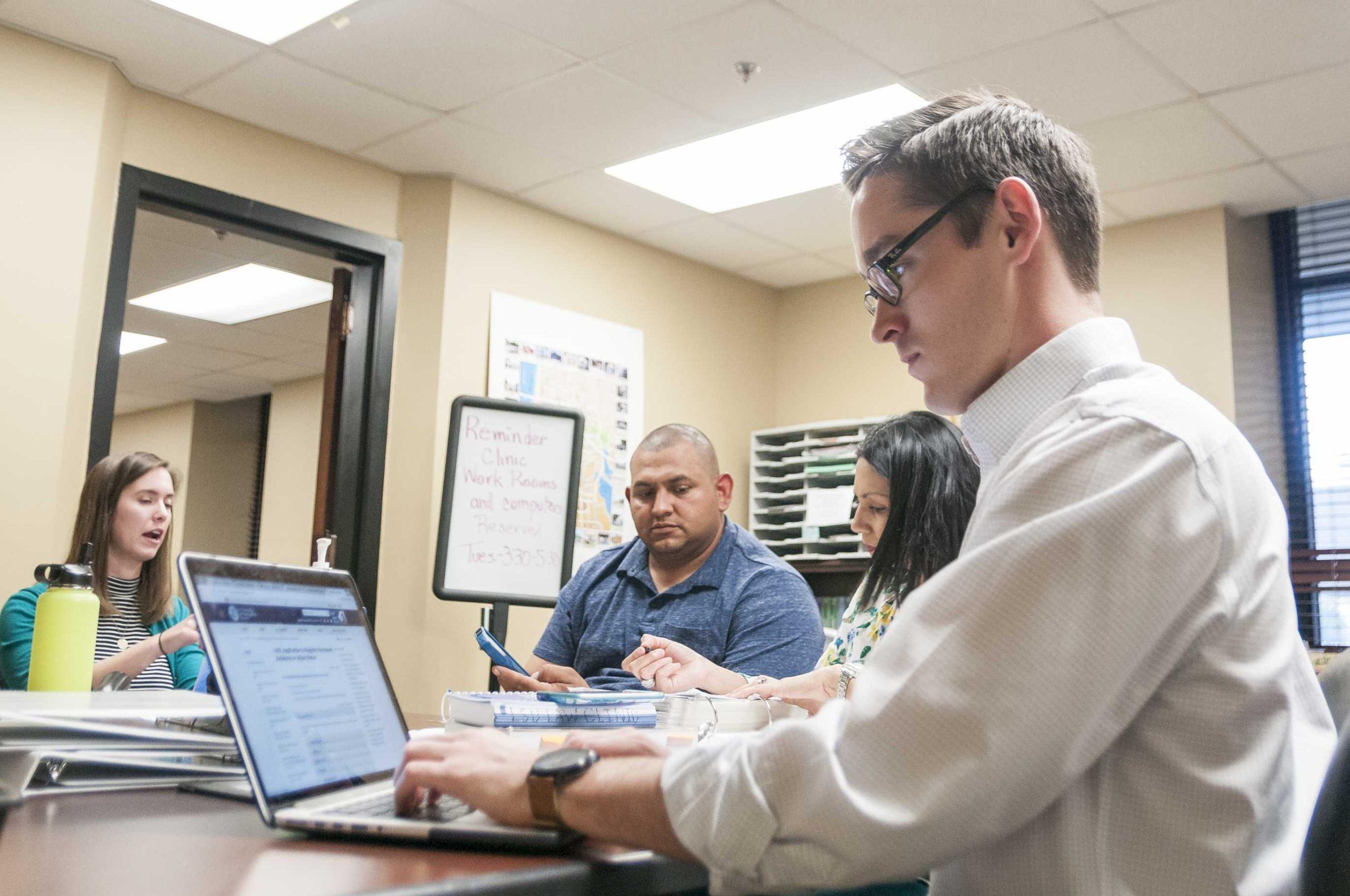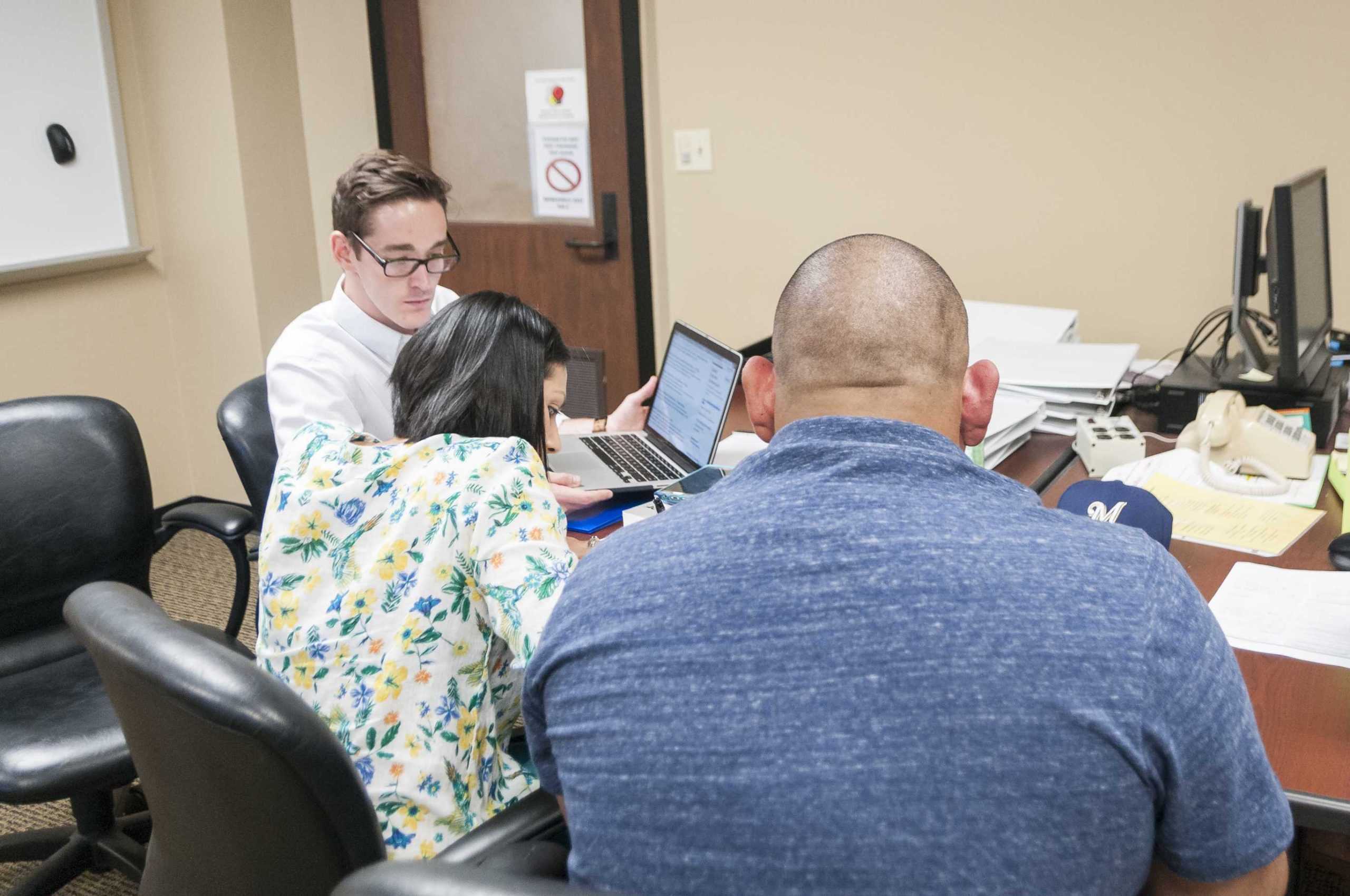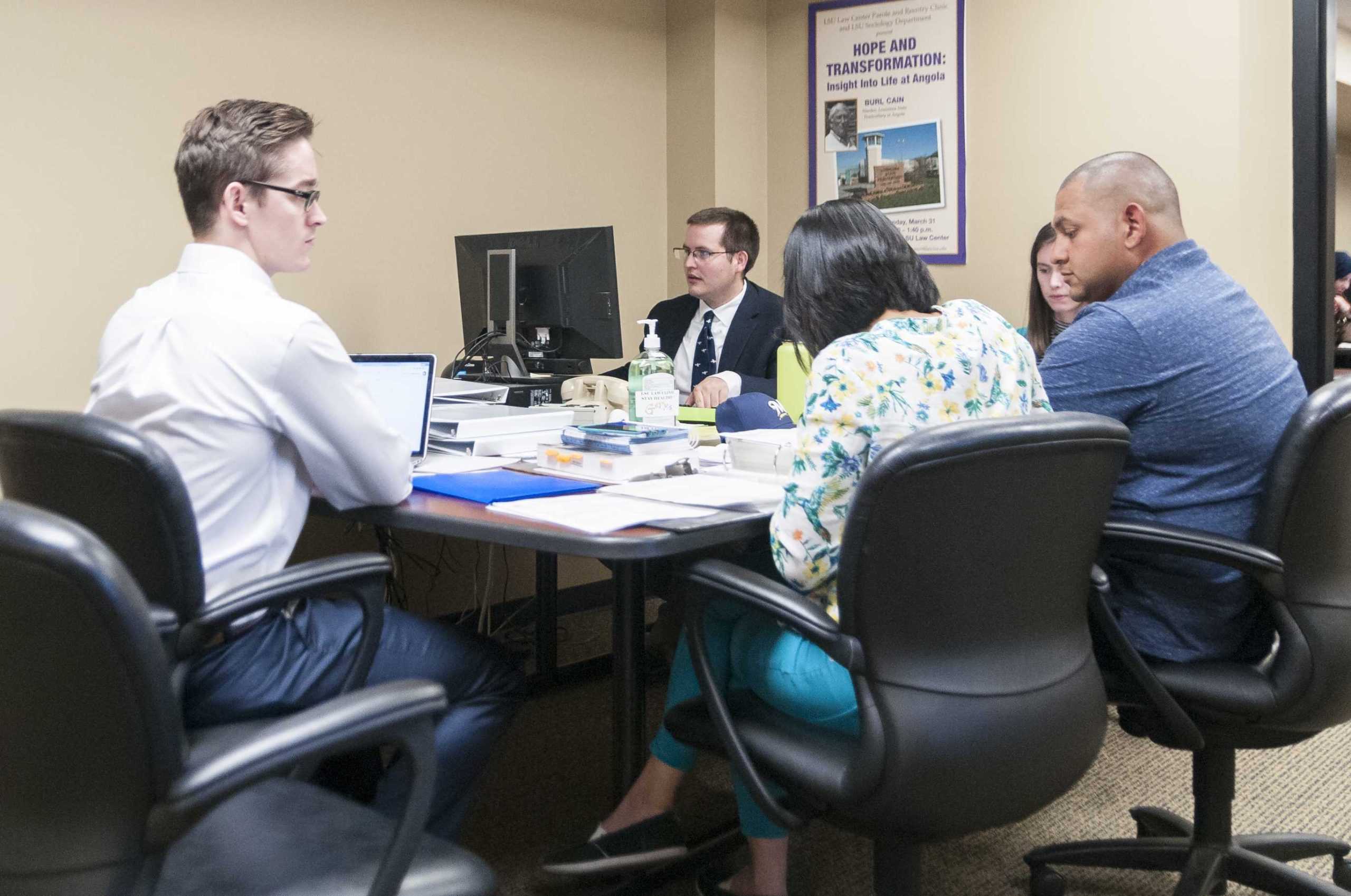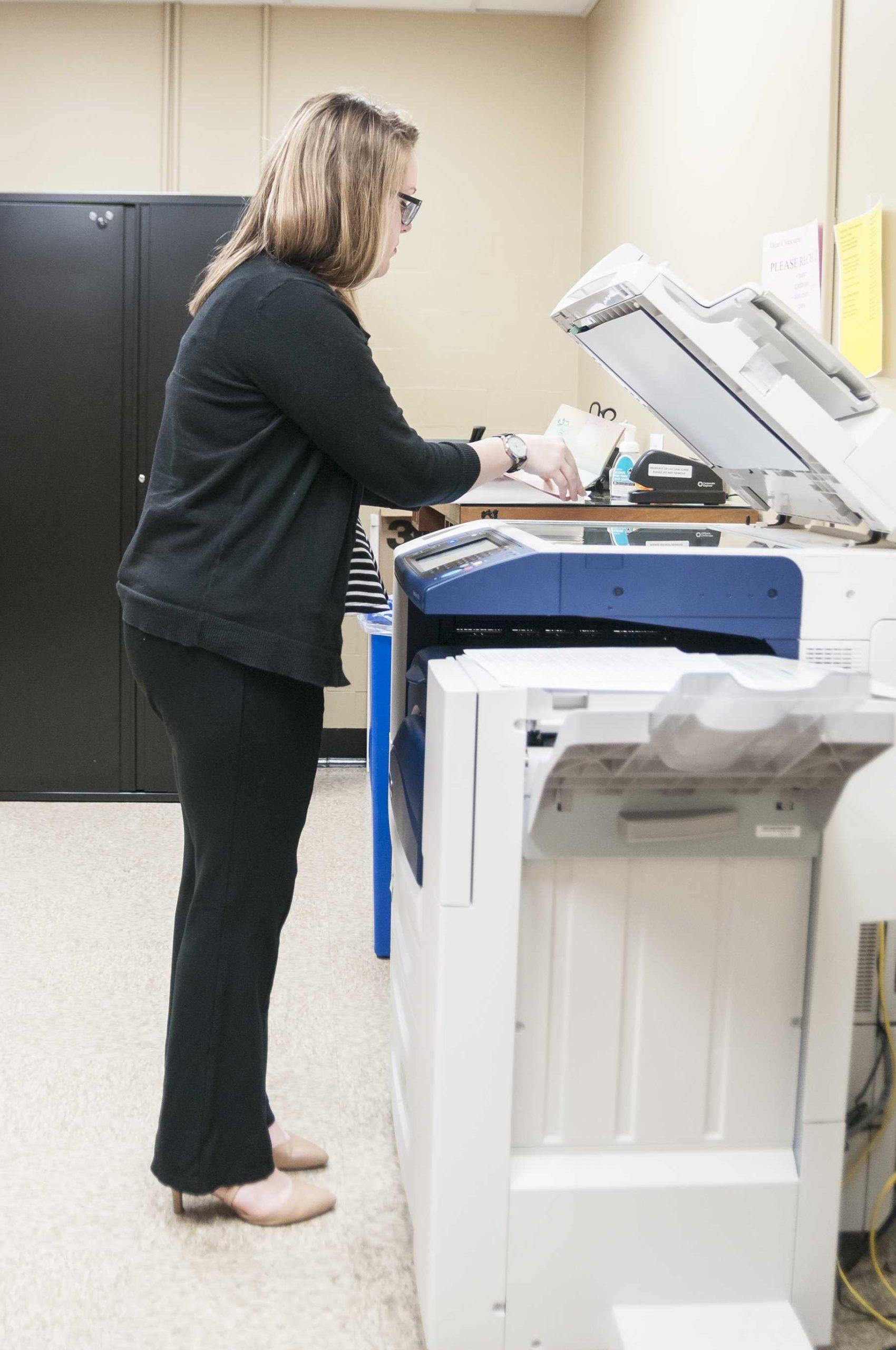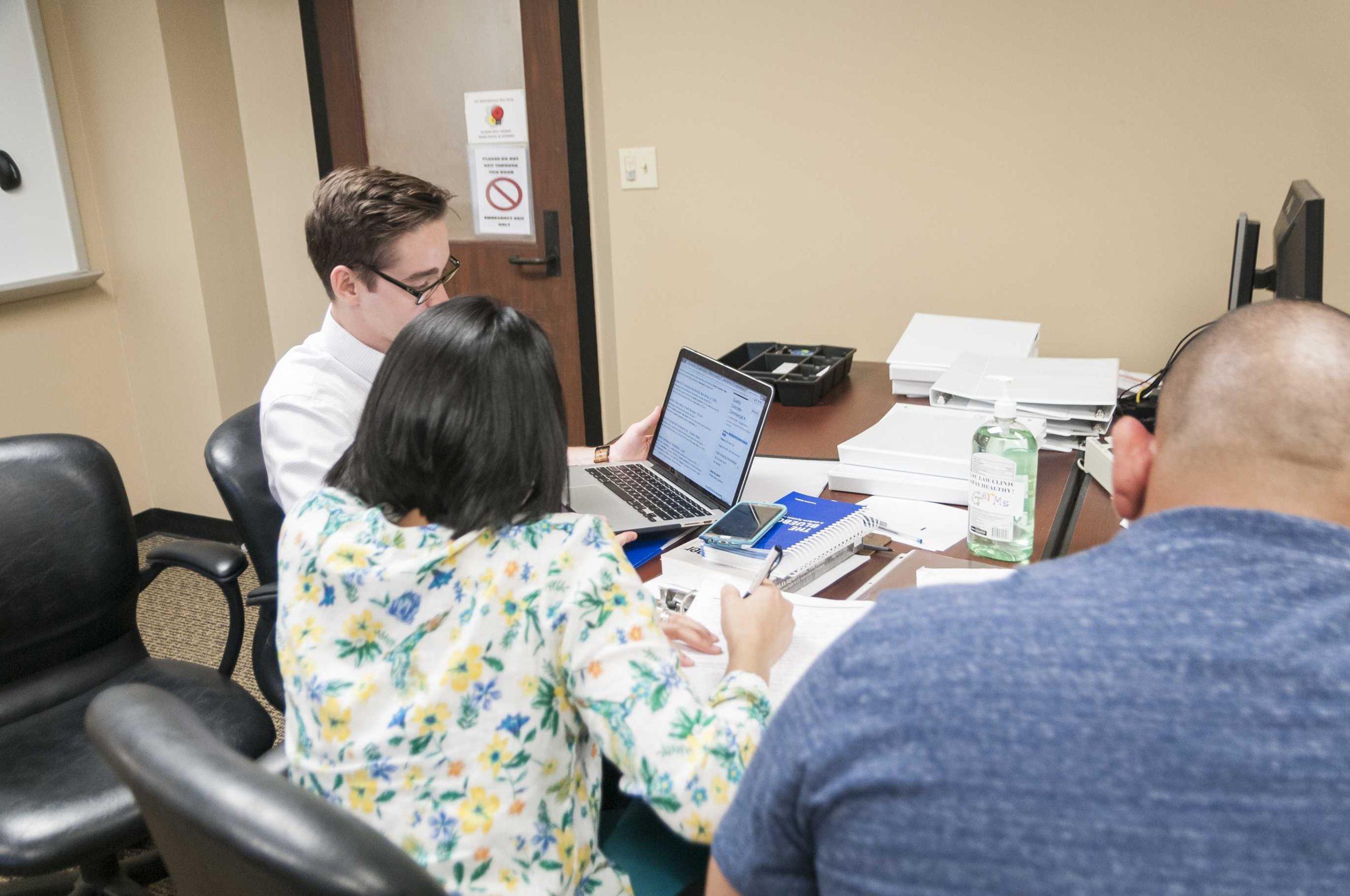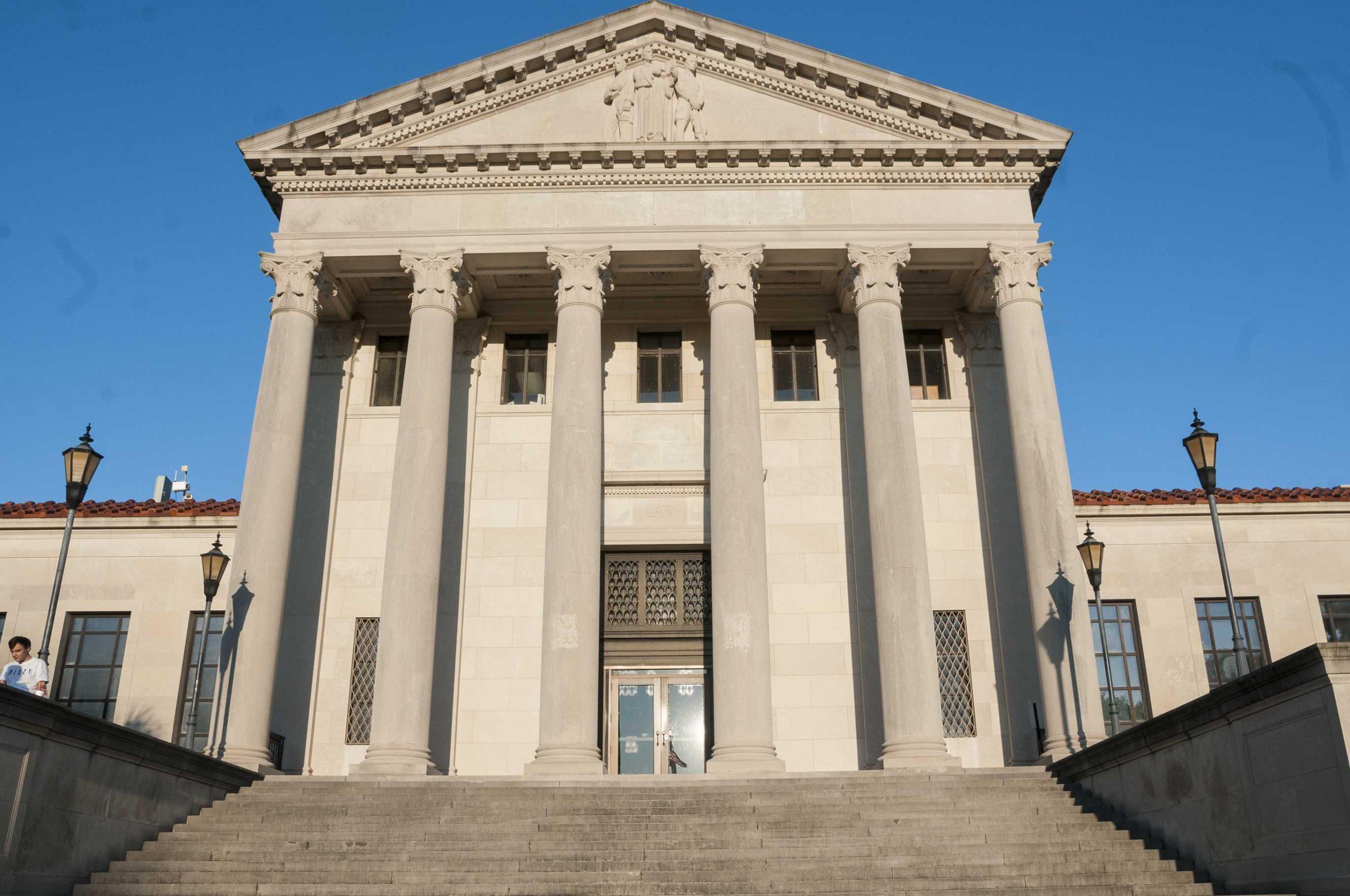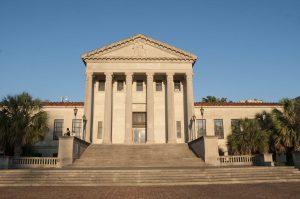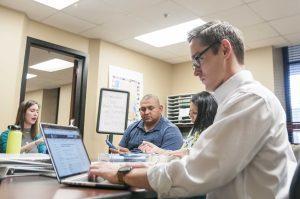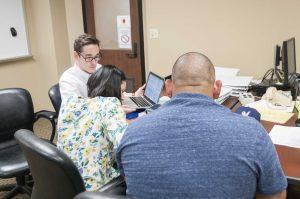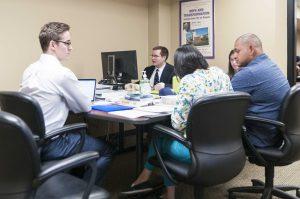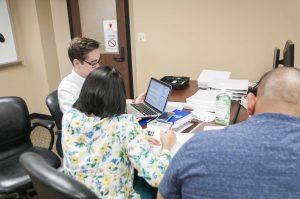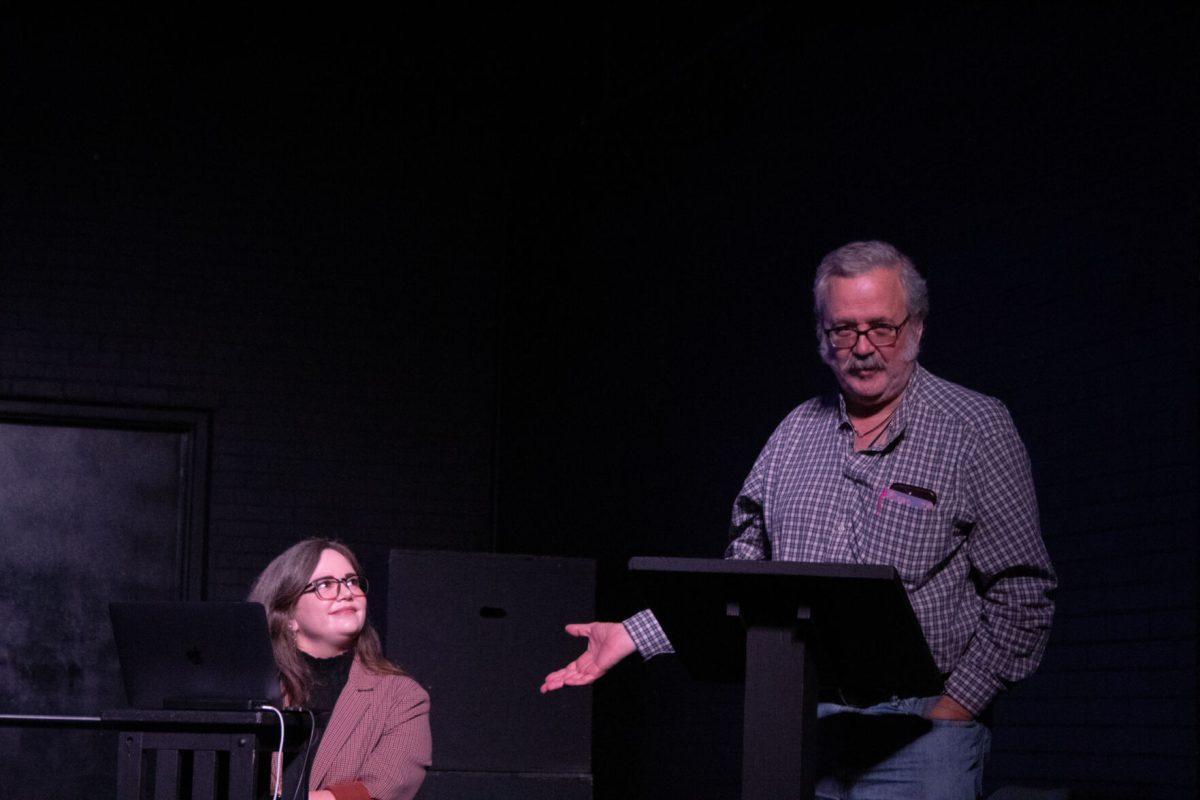The Paul M. Hebert Law Center Immigration Clinic hosted its annual green card clinic March 20. Eighteen green card applicants attended, including Iraqi, Honduran and Venezuelan asylees.
The Immigration Law Clinic allows students to fight for clients seeking immigration status in the U.S.
The program is open to second- and third-year law students and handles “humanitarian based immigration cases,” according to clinic director Lauren Aronson. Aronson said she became the clinic’s director in the fall of 2015.
Aronson said the primary goal of the clinic is to give students hands-on experience handling cases with real clients.
“The purpose of the clinic is primarily to teach students how to engage in the practice of law in a way they don’t get to experience in their more lecture-based classes,” Aronson said.
Third year law student Lauren Ferand said one of her clients was granted asylum two weeks ago. She said she’s excited to be a part of the clinic to help people from challenging backgrounds “reach the American dream.”
“It’s very eye opening seeing people’s different lives and how different my life was growing up compared to someone else’s,” Ferand said.
While she doesn’t think she’ll go into immigration law professionally, Ferand said the skills she’s learned during her time at the clinic are critical for whatever area of law she decides to practice.
“I think this is a great way to learn how to work with a different group of people and how to interact with clients,” Ferand said.
The clinic is also set up to serve the Baton Rouge and South Louisiana community, Aronson said. The clinic’s clients are indigent members of the community who either have or are seeking some level of immigration status.
“The clinic provides the legal services to get a stabilized or regularized immigration status,” Aronson said.
Aronson said the bulk of the clinic’s cases are asylum cases. Clients seeking asylum must have suffered persecution for their race, religion, nationality, political ideology or membership in a particular social group. Since her term as director, the clinic has gotten asylum for 18 clients.
“These cases are notoriously difficult to win, especially without representation,” Aronson said.
Twelve of the 18 asylum cases were clients from Central America fleeing gang-related violence in their home countries of either Honduras or El Salvador, Aronson said. Each of these clients belonged to a social group targeted by gangs and would risk considerable harm or death if they were to return home.
Four of the cases involved Turkish nationals fleeing political and religious persecution. The remaining two cases were citizens of Bangladesh.
“I’m extremely proud of what my students have accomplished, and I think it’s making a very significant difference in the community here,” Aronson said.
Without the clinic, Aronson said it’s likely these clients would be removed from the U.S. and sent back to their home countries to face probable harm. Their clients cannot afford to hire an attorney, and Aronson said she doesn’t think there are other pro bono opportunities for them in the area.
The semester-long program accepts a maximum of eight students per semester, according to Aronson. Since she’s been the director, all eight spots have been filled every semester, aside from her first semester when only five spots were given.
Immigration clinicians receive class credit for their participation and also take a seminar class to accompany their cases, Aronson said. The seminar teaches students skill exercises, as well as the fundamental immigration law needed for their casework.
The clinic partners with Catholic Charities of the Diocese of Baton Rouge refugee program to provide a green card clinic, Aronson said. Once a semester, clinicians and other participants meet with people eligible for green cards to ensure their eligibility and assist them with the application process.
“I have two missions for myself: to serve my students and serve my community,” Aronson said. “This is one of the events that I feel really helps the community and is making a difference.”
Venezuelan asylees Choughik Kaltakjian and Belani Torres found the Immigration Clinic through Catholic Charities. Kaltakjian and Torres came to Baton Rouge with Kaltakjian’s parents, her sisters and their families to meet other family members already living in the area. Kaltakjian and Torres were forced out of Caracas, Venezuela, due to their political party affiliation.
Kaltakjian said they’ve had a positive experience with the Immigration Clinic.
“It’s a blessing that they offer the service for free,” Kaltakjian said in a quote translated for The Daily Reveille. “They know what they’re doing. It’s all been excellent. They’re good people.”
Aronson said the language barrier can be a challenge. She speaks Spanish and often serves as an interpreter for her students and their clients. She’s also had Spanish-speaking students working in the clinic assist with translating between other students and clients.
“It’s easier to make a connection with a client when you do speak their language, but you spend so much time with your clients over the course of the semester that eventually you know each other well enough that even though you’re not understanding every word they’re saying, you’re still able to make that visceral connection with them,” Aronson said.
The only other language the clinic’s encountered is Arabic, Aronson said. In that case, the clinic recruited undergraduate Arabic speakers to serve as translators in the clinic.
Second-year law student Jourdan Curet said dealing with bureaucracy can be frustrating, as government agencies don’t often operate as efficiently as the time sensitivity of immigration cases necessitates. She described her experience with the Immigration Clinic as busy because “immigration work doesn’t rest.”
“It’s very frustrating when you’re fighting for your client whose life is on the line,” Curet said. “On the other side of that coin, I would say it’s also very fulfilling.”
Curet said the work is emotionally draining. It’s difficult to continuously ask her clients to relive their trauma, but it’s necessary in order to achieve some sort of immigration status. The heaviness and emotion involved with each case is the most challenging part of her work with the Immigration Law Clinic, Curet said.
“I think the hardest part is sitting across the table from people who have been through hell and back, and they’re here and they’re completely relying on you to help them and you know there’s only so much you can do at the end of the day,” Curet said.
LSU Law’s Immigration Law Clinic helps refugees gain asylum, offers hands-on experience for law students
March 22, 2018
Director of the LSU Paul M. Hebert Law Center Immigration Clinic Lauren Aronson during the LSU Law Immigration Clinic on Tuesday, March 20, 2018, in the LSU Law Center.
More to Discover



